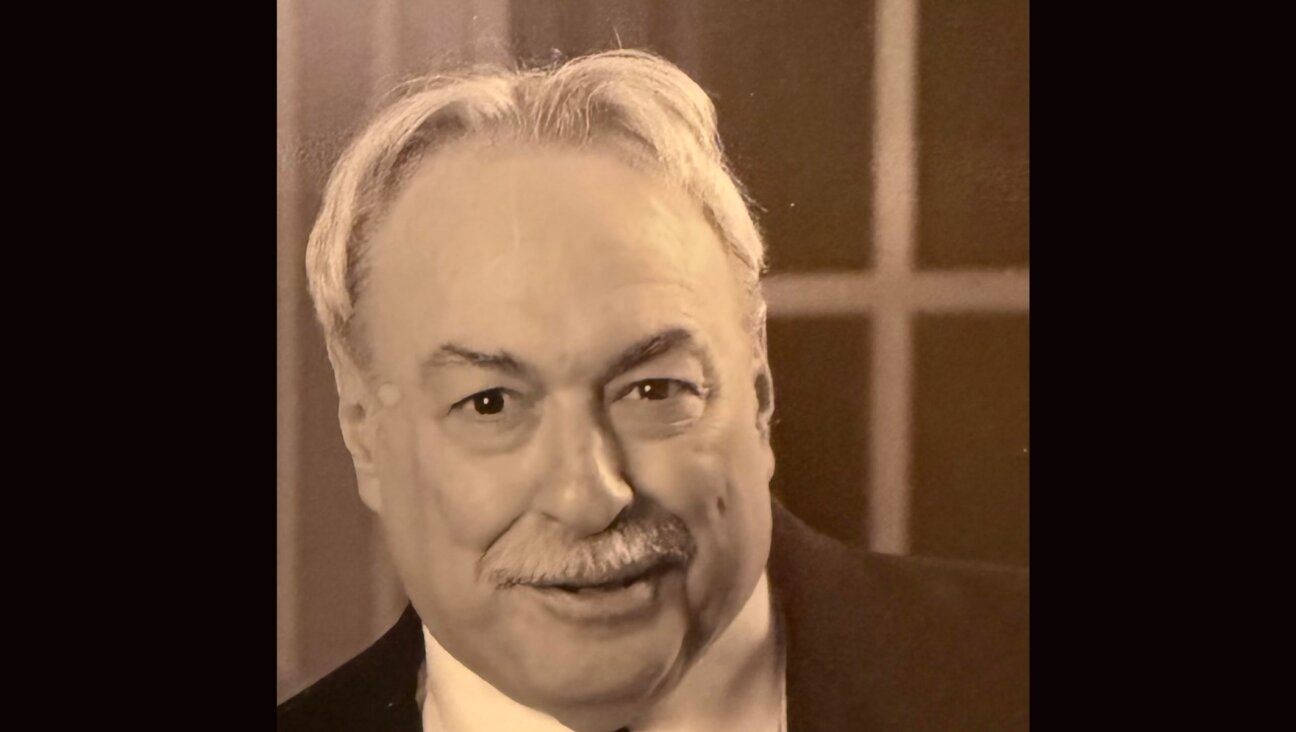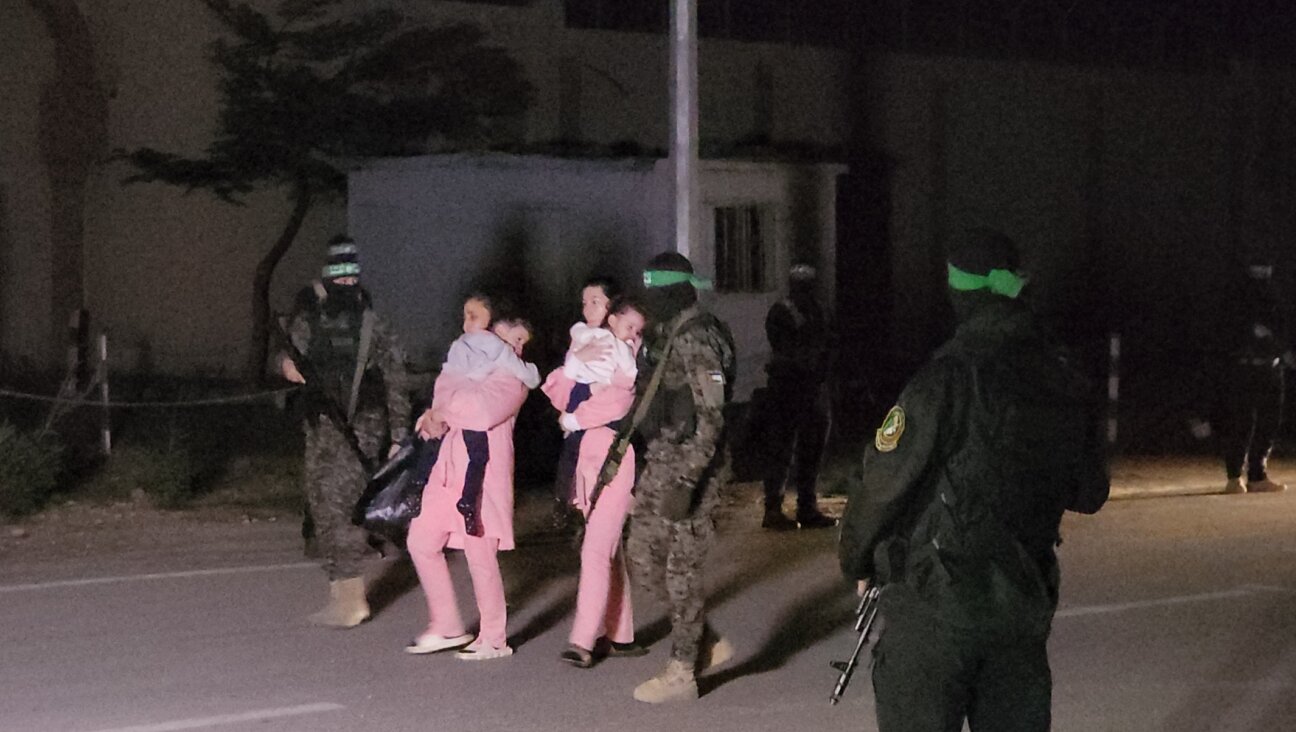Between a Cross and a Hard Place
Like other Jewish leaders, Mitch Glaser will not be attending a special pre-screening of Mel Gibson’s controversial new film, “The Passion of the Christ.” Unlike them, however, he has at least been invited to one.
That’s because Glaser is an unusual Jewish leader: He is the president of Chosen People Ministries, one of the many groups that call themselves Jewish but believe that Jesus was the messiah.
“I’ve had invitations to see the film, but as a Jew I know other Jewish leaders [didn’t],” Glaser told the Forward. “It’s my small protest.”
It seems obvious, yet amid the furor over the film’s potentially antisemitic nature, few people have thought about the one group for whom it poses a particularly unique quandary. As people who believe themselves to be both Jews as well as followers of Christ, messianic Jews feel the pain of both sides in the controversy. And while a number of prominent Jewish groups have come out squarely against the film, and most evangelical Christians have defended it, messianic Jewish organizations — including Chosen People Ministries, Jews for Jesus and dozens of other Hebrew Christian churches — have found themselves a bit adrift.
“My messianic Jewish friends are split,” said Michael Brown, president of the Fire School of Missionary in North Carolina and a messianic Jew. “The hope among them has been [that the film] accurately portrays what happened to Jesus the Jew… on the flip side they share some of the concerns of the Jewish community.”
Glaser was quick to stress that he doesn’t believe that Gibson is antisemitic, that he doesn’t believe that the gospels are antisemitic and that there is nothing inherently wrong with trying to make a film about the Passion. “The gospels in no way imply that the Jewish people killed Jesus,” he explained. “God gave his son [for mankind’s sins], that’s what the New Testament teaches.” But Glaser also believes that the history of antisemitic violence that has traditionally accompanied Passion plays must be taken into account, along with the current wave of antisemitism sweeping across Europe.
“Do I want to see this movie translated into French [and] heating up antisemitism in France or in parts of the U.S. where there aren’t many Jews?” Glaser asked. “As a Jew, I wish [Gibson] hadn’t made it.”
The film has caused enough discomfort in the messianic Jewish community that the Chosen People Ministries organized a debate last week between Brown and Rabbi Shmuley Boteach, which posed the anxiety-producing question: “Who Killed Jesus?”
More than 750 people crowded into the Hilton Hotel for the debate, filling every seat in the auditorium and spilling out onto the floor. And the room might have been the perfect representation of the divisions over the film. When Brown spoke of the greatness of Jesus’ sacrifice, a large swath of the crowd went wild with whoops and cries of “Amen!” Then, when Boteach venomously denounced the gospel accounts as inaccurate and unfair to the Jews, the Jews in the room applauded.
But even as he was defending the gospels and the film, Brown conceded that both could be used as excuses for violence. “If anything comes out in the way of misunderstanding or antisemitic venom from that film, my voice will be as loud as Shmuley’s to fight against it,” Brown vowed.
Some within the community have even suggested that messianic Jews could serve as a conduit of conversation between the evangelical and the Jewish communities in their discussions about the film.
“We’re the lone voices in [the evangelical] community bringing a perspective to people,” said Laura Fels, a missionary for Chosen People Ministries, who believes messianic Jews can temper the evangelical fervor over the Gibson film. “It’s an important thing we can bring into churches… because we have credibility in their eyes.”
Still, the overall mood of the Hebrew Christian community at large is far from tepid. Steve Fenchel, the pastor at Chosen People Ministries, said that he and his congregants were “cautiously optimistic about the film,” while some have been even more openly positive. Darrell Bock, a research professor at Dallas Theological Seminary and a messianic Jew, saw the film last summer and called it “one of the most powerful movies I’ve ever seen.”
“I think the Romans come out a lot worse than the Jewish leadership does or the Jewish characters in the film,” Bock told the Forward.
Indeed, Jews for Jesus has begun circulating a cartoon pamphlet titled “The Passion: What Are the Facts?” that endorses most of Gibson’s ideas. “The central figure in ‘The Passion’ is Jewish, born of a Jewish mother, raised as a Jew and lived as a Jew,” says the pamphlet text printed above a cartoon drawing of a smiling, teenage Jesus next to his equally happy mother, standing outside their desert house.
A message from our Publisher & CEO Rachel Fishman Feddersen

I hope you appreciated this article. Before you go, I’d like to ask you to please support the Forward’s award-winning, nonprofit journalism so that we can be prepared for whatever news 2025 brings.
At a time when other newsrooms are closing or cutting back, the Forward has removed its paywall and invested additional resources to report on the ground from Israel and around the U.S. on the impact of the war, rising antisemitism and polarized discourse.
Readers like you make it all possible. Support our work by becoming a Forward Member and connect with our journalism and your community.
— Rachel Fishman Feddersen, Publisher and CEO























